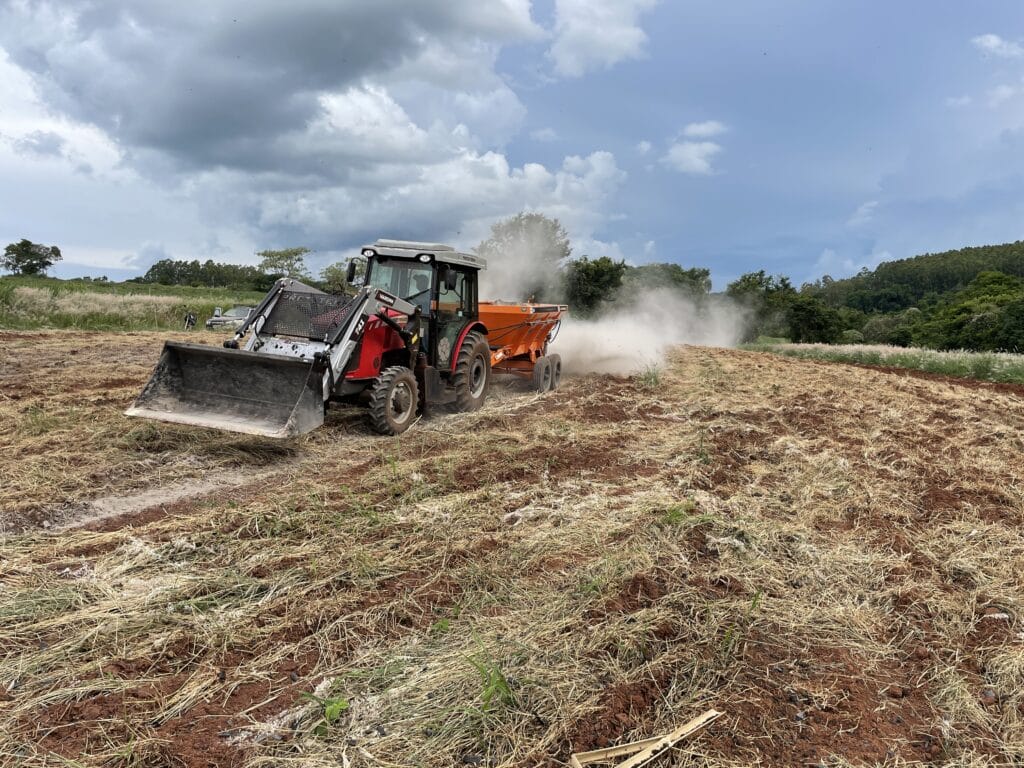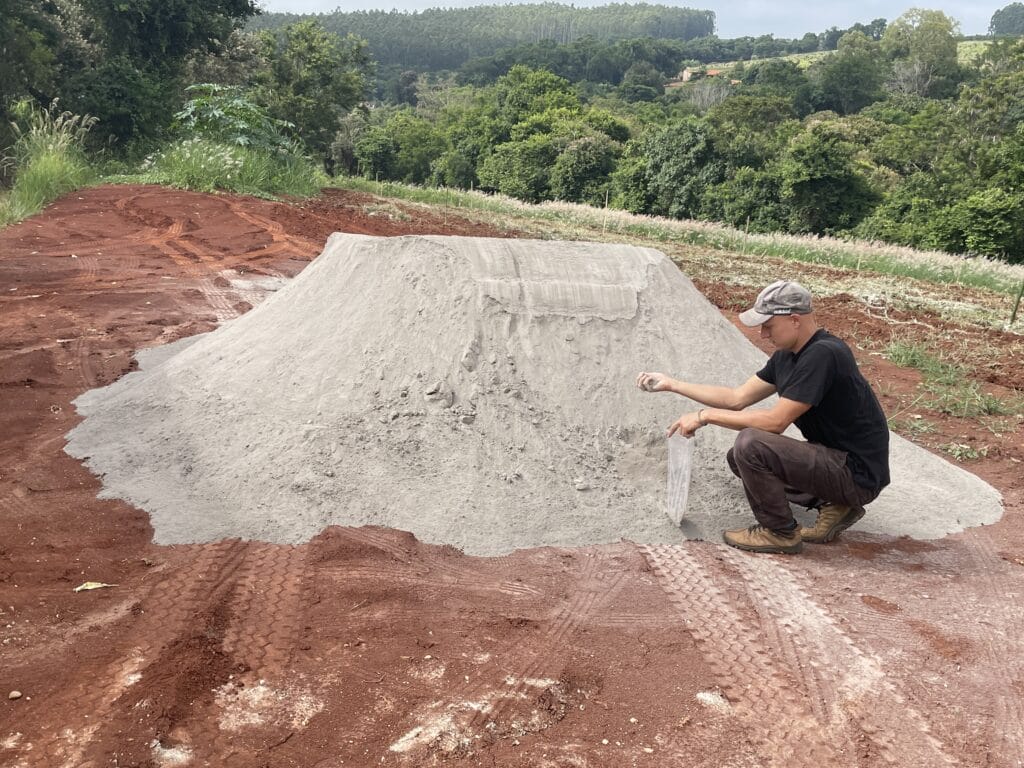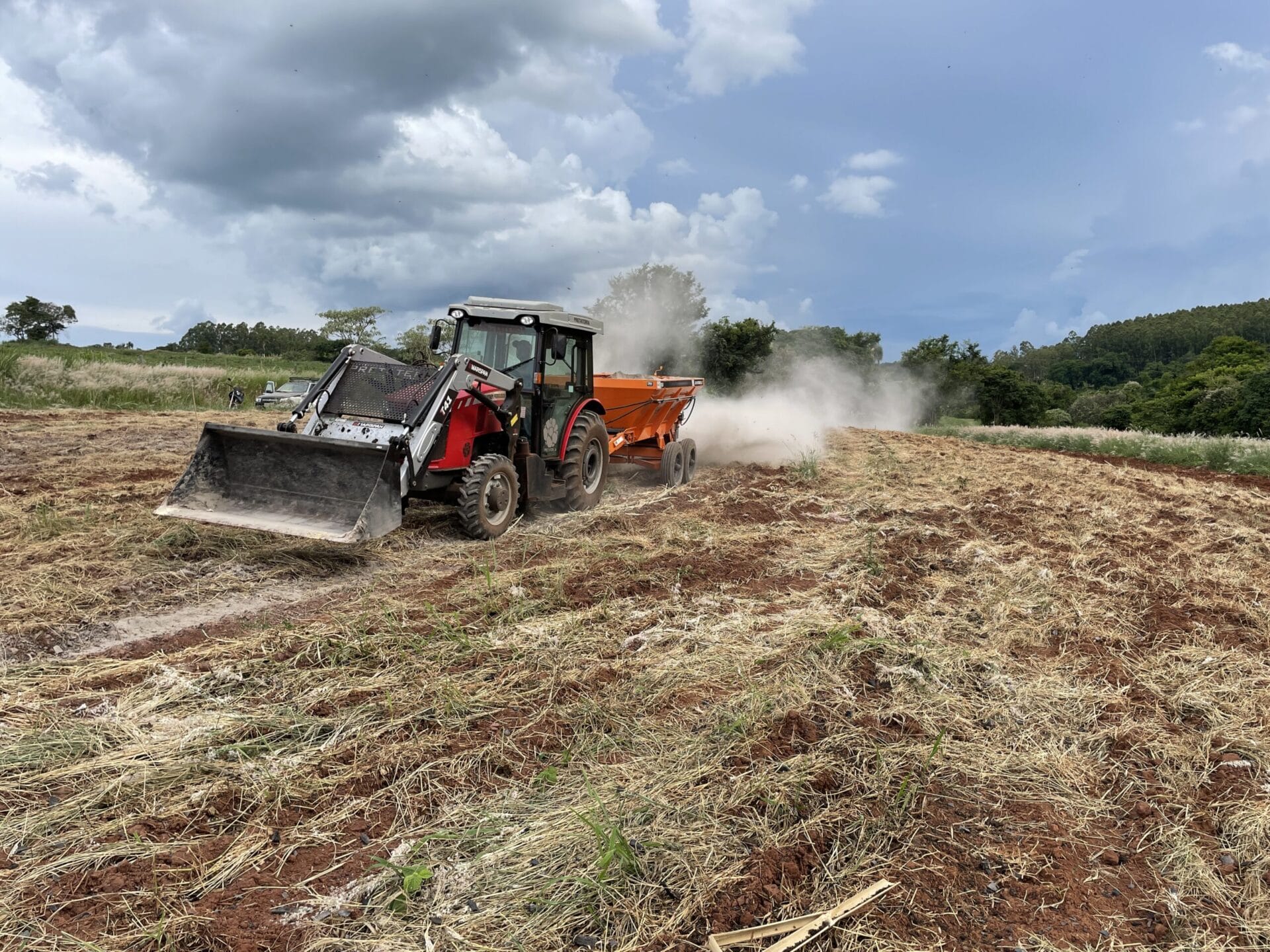Find out more about this new type of carbon removal technology through a Q&A with InPlanet, one of Thallo’s Founding Partners.
InPlanet is a carbon project developer at the forefront of technological carbon credits (as compared to nature based credits). The company is pioneering carbon removal credits from enhanced rock weathering.
Don’t know what that means?
Find out more through our interview with InPlanet COO, Niklas Kluger, below. He tells us about how the technology works, why the voluntary carbon markets are so challenging to scale, and why they’re excited to partner with us.

Thallo: What is ‘enhanced rock weathering’? How does your project work?
InPlanet: The breaking down of rock has stabilized the climate throughout the world’s history. Most of all atmospheric carbon ever stored is based on silicate rock reacting with water and CO2. This is creating carbon rich (more precisely bicarbonate rich) water streams to the oceans where the carbon then accumulates in sediments.
By grinding silicate rock, e.g. basalt, and spreading it on land this process is accelerated by many magnitudes. This is usually referred to as enhanced rock weathering, follow this link for a deep dive.
There is a lot of agricultural land available which is used for spreading tons of chemicals and pesticides already today. We now use this infrastructure to spread rock powders in tropical agriculture, currently in various regions in Brazil. The tropical soil and climate conditions are very favorable and make the rock-water-CO2 reaction occur even faster. At Inplanet, we are building the tools that can connect mines with local farmers to use rock powders for carbon sequestration and simultaneously substitute synthetic farming chemicals.
Besides creating the right methodologies for that, we develop adequate tools so the verification process fits into the daily routine of farmers. Moreover, we also built educational tools that show the operational and economic impact of rock powder use on farm level.
Thallo: What inspires you to do this work?
InPlanet: Soil is the key resource for the whole land based ecosystem we as humans live from. Sequestering carbon and simultaneously restoring soil seems like a fascinating win-win situation to me. It’s also a chance to consolidate between the usually less environmentally friendly mining sector and the climate movement.
The new possibilities that emerge through the use of rock powders are mind blowing. Currently most of the rock powder is originating from residues within the mine, more precisely mining tailings originating from production of construction material or ornamental stones. Until now this stuff merely accumulated as an environmental passive in the mines – we are talking millions of tons yearly.
So we have a very interesting circular economy case with enhanced weathering as well. Moreover, rock powders can be combined with biochar, bacterias, funghi, organic composts and so on, which opens up a whole world of possibilities.
The carbon market has the chance to accelerate this process by providing the financial incentive for a fast transition to rock powder fertilization in the tropics. That would really shuffle the traditional fertilizer market quite a bit. Away from fertilizing the plant to fertilizing the soil by using mainly locally sourced inputs. This has a huge impact in terms of food security and food sovereignty in the tropics.
Also, we see that when we create a living soil with the right nature based inputs, we will only need very little synthetic correction for whatever crop we want to grow. Besides possibly sequestering GTs of CO2 in the future, these new rock powder based opportunities do really inspire me.

Thallo: What are the biggest barriers today to scaling the voluntary carbon markets?
InPlanet: Besides the usual policy issue I’d say there is confusion between the types of credits that are out there. If we are not clearer what is reduction/avoidance and what is removal, we will get problems with people’s expectations and trust in the market. For example, I personally think that avoiding deforestation should not generate carbon credits. For me this is rather an environmental protection or ecosystem service credit, but not necessarily a carbon credit. Also good carbon management tools for companies must be in place that directly link to platforms like Thallo, this way effectively channeling the demand for removals to the right projects.
Finally, communities worldwide need to have unbureaucratic access to the carbon removal market. For example, at the moment we are facing the situation that small scale farmers are not able to participate in the carbon removal market with their land. This must be possible in the future, because besides the big landowners we will depend on every actor that can remove CO2 to scale to the gigaton. Here my bet really is that blockchain technology can create just the right tools for that.
Thallo: Why are you excited to partner with Thallo?
InPlanet: Think about how to build a blockchain for enhanced weathering together. That would really excite me. Also having someone who can connect our project to an international group of clients really helps us as a startup to take some of the weight off our shoulders. To reach the GT scale is for any carbon removal technology a serious challenge. This will only be accomplishable with strong partnerships throughout the full vertical of the carbon removal market.
– –
For more information, check out the Thallo website or follow us on Twitter, LinkedIn or Telegram.





